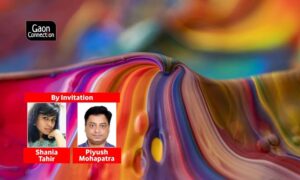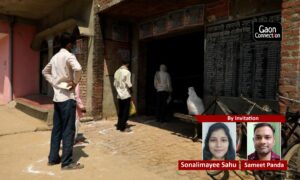Indians have, in recent times, repeatedly indulged in the “honour killing of science” with impunity. That such contempt of science has gained strong foothold is an unfortunate development.
There can be no better example of this than the ‘thali and tali’ fest on the evening of March 22. A message widely circulated prior to the appointed time of the fest said that the crescendo created by the reverberations of beating of various articles during the fest would shock and kill the virus, thus saving us Indians from its wrath.
The reply to my query whether the sender actually believed in what the message said was an emphatic yes. Not only this, I was further educated by him about the importance of the timing selected for the fest because of the favourable planetary configuration for India.
The very purpose of the appeal by the Prime Minister for maintaining social distancing was defeated when hordes of people thronged the streets at many places with ‘band baja’, wishing corona to spare India. The SP and DM of Pilibhit district themselves led one such procession from the front. Some prominent leaders, too, were guilty of similar ignorance.
Even before the ‘thali–tali’ fest, there was this spectacle of a Union minister chanting “go corona” to persuade it to spare India. Then there is this breed of “cow scientists” who, through their extensive research (sic) in matters related to “cow and cow products”, declared cow dung and urine to be a sure cure for the virus. A West Bengal policeman falling sick after consuming cow urine was only a small setback in the quest of these “cow scientists” to propagate these cures.
Before the coronavirus hit India, people exulted over Indian cultural practices like greeting with folded hands, purification through ‘havans’, etc, saying they have been instrumental in the coronavirus not affecting India. It was of no concern to them that shaking hand is just one of the ways of spreading the virus. The belief in power of mantras is also very strong: several recorded video and audio messages were circulated eulogizing the powers of these mantras and beseeching people to chant them to prevent coronavirus from harming them.
Such unscientific and irrational beliefs are widely prevalent in India and it is extremely frustrating for a person even remotely rational to bear with such inanities. Such beliefs have started taking much stronger roots in recent times and a non-believer often gets trolled for disagreeing. There has been an increasing trend over the last few years of some people resorting to reinterpretation of ancient poetic verses, scriptures and other texts and attributing random meaning to them.
In the sixties, our neighbourhood was abuzz with stories of existence of a ‘stove devta’ at a neighbour’s house, which inexplicably and in contravention of Newton’s laws of motion apparently shifted positions due to the power of mantras. The house was crowded with curious neighbours eager to see the phenomenon. However, the ‘devta’ steadfastly refused to perform anywhere outside the house of the neighbour. Notwithstanding this ‘minor’ difficulty, the legend continued to mystify the neighbourhood for several days.
Then there was the ‘milk miracle’, which brought India to a halt on September 21, 1995. The phenomenon ceased at most of the temples by afternoon and a team of India’s ministry of science and technology, after a detailed study, attributed it to capillary action.
However, the large number of devotees congregating at temples to offer milk caused massive traffic jams and shortage of milk.
Some amount of superstitious and unscientific beliefs are prevalent all over the world. However, the Indian case is an acute one.
Even though the literacy rate in India has gone up substantially since independence, most of those termed literates are barely able to sign their names. The present definition of literacy does not imply that they possess logical reasoning ability. Most, in fact, do not even have the understanding of simple things of life. Unable to understand the science of things happening around them, they attribute these to the mysteries of nature. Afraid of the wrath of an unknown and unseen superior being, they frequently approach quacks to pacify the gods. The quacks take advantage of their simplicity and exploit them monetarily and physically.
Even the highly educated people in India are rooted in superstition and have beliefs not based on scientific principles. Such beliefs are further strengthened when the leaders and other reputed persons openly encourage irrational beliefs through unscientific claims in public. So, when the Prime Minister publicly states that an Indian had carried out the first plastic surgery by transplanting the head of an elephant on Ganesh, no one would perhaps dare to question why then a human head was not transplanted instead? Or when the Prime Minister states that just by connecting a pipe to the stove with other end placed in the gutter, gas can be produced for lighting the stove, most believers in his ideology would tend to celebrate what he said.
We had the vice-chancellor of Andhra Pradesh University claiming in the Indian science conference in 2019 that ‘Kauravas’ were conceived through stem cell and test tube technology and India possessed knowledge about guided missiles thousands of years ago. He and some other presenters at the conference made many such claims based on the interpretation of mythological scriptures.
These are very advanced technologies and the question is why did a civilisation that possessed them did not possess simpler technologies like electricity, etc. There is no answer to that.
There are many more examples of leaders intentionally or unintentionally encouraging such unscientific beliefs. For example, the Chief Minister of Tripura stated that the 18-day battle of ‘Mahabharat’ was broadcast live by ‘Sanjay’ through the internet!
Then there is a lawmaker who believes that patting a cow in a particular manner cures cancer, notwithstanding the fact that the lawmaker herself underwent traditional therapy for cure of her own cancer. We have, thus, several quacks who have attained national fame and became big businessmen by practicing quackery.
We also have educated people who strongly believe that miracles happen. There is a colleague — a senior retired government servant — who even now believes that a sadhu had miraculously appeared to give him cardamom and fennel when he was desperately craving for them during the tough Amarnath yatra. Any suggestion that he may have been hallucinating because of exhaustion invited a strong retort. I, thereafter, preferred to keep my council.
The fact is that Indians are superstitious and they continue to believe in miracles. The fact is also that during the last few years, we have further regressed and such beliefs are taking even stronger roots. If this regression continues, the idea of India becoming a ‘vishva guru’ will be extremely difficult to achieve.
Sanjiv Krishan Sood is a Retired Additional Director General of Border Security Force. Having put in over 38 years of meritorious service, he has served along all the borders of our country with Pakistan and Bangladesh
(Views are personal)


















